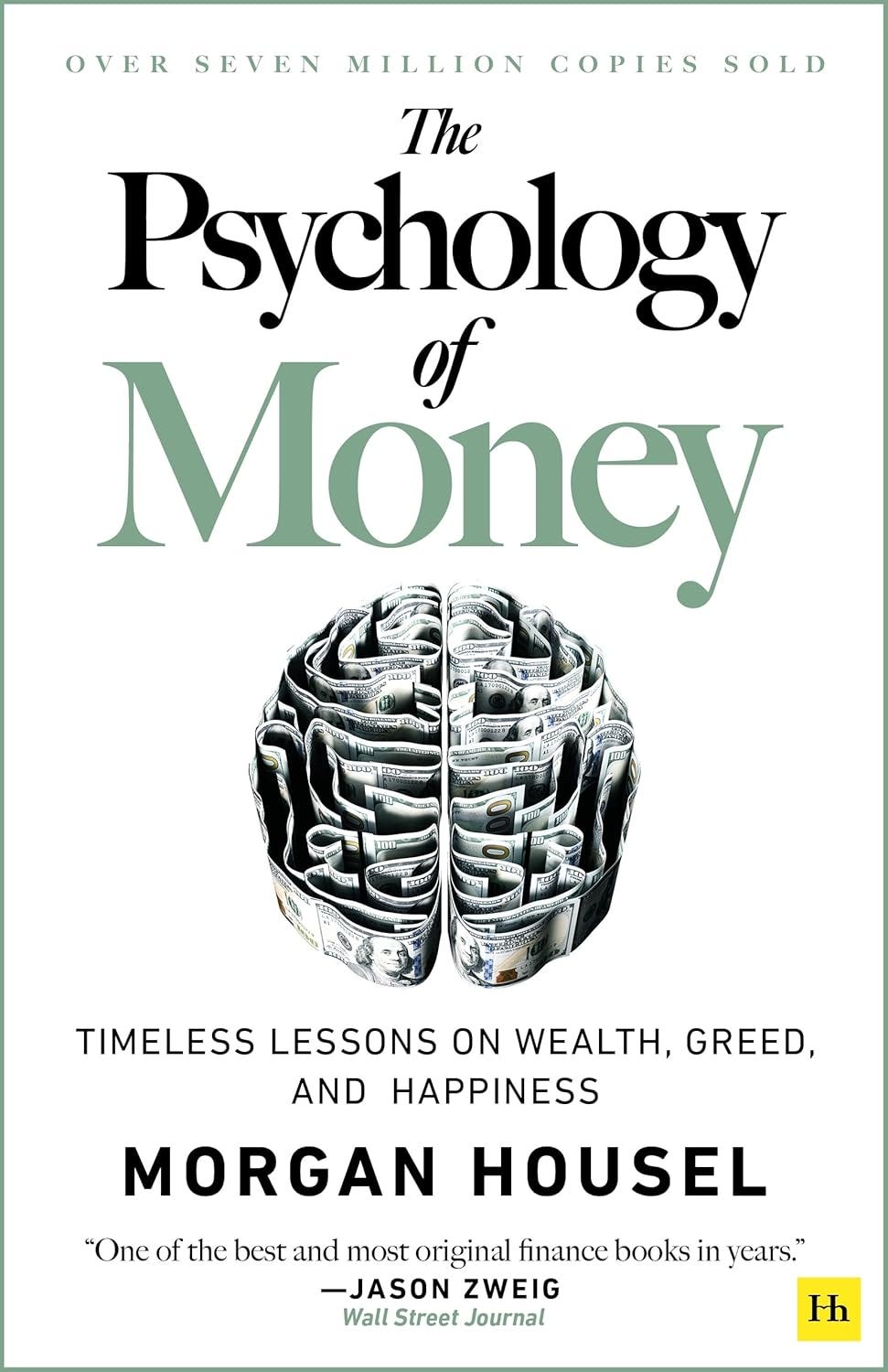📕 "The Psychology of Money: Timeless Lessons on Wealth, Greed, and Happiness" by Morgan Housel (Sunday Book Review)
SBR #5: Wealth-building is about behavior, mindset, and emotions.
In this Substack, I will walk you through the process of starting, operating, maintaining, and — if needed — selling or closing your own small business.
And, in today’s Sunday Book Review, I write about a book that looks at money from the stand-point of behavior, mindset, and emotions. Morgan Housel explores the emotional and psychological factors that shape our financial decisions, drawing from history, economics, and personal anecdotes.
The book’s core message is that personal finance is more about how we think and feel about money than what we know about it.
📕 The Psychology of Money: Timeless Lessons on Wealth, Greed, and Happiness
Author: Morgan Housel
* This is an affiliate marketing link to Amazon.com.
♥️ Your purchase helps to support this Substack community. ♥️

Book Overview
Money isn’t just about math — it’s about human behavior.
In The Psychology of Money, Morgan Housel explores how emotions, habits, and life experiences shape financial decisions more than spreadsheets and formulas ever could.
Through engaging storytelling and real-world examples, Housel reveals why intelligence doesn’t always lead to wealth, how luck and risk play a bigger role than we think, and why mastering your mindset around money is the key to long-term financial success.
This book shifts the focus from “how to make money” to understanding the why behind our financial choices, making it a must-read for anyone looking to build lasting wealth with confidence and clarity.
Wealth-building isn't just about math — it’s about human behavior.
…for Entrepreneurs & Freelancers
This book is perfect for entrepreneurs and freelancers who are interested in understanding how emotions and psychology influence financial decisions and money-matters in business.
Whether you're just starting to manage your money, looking to invest, or simply curious about why people often make irrational financial choices, The Psychology of Money offers clear and actionable insights into how money works in the human mind, not just the bank.
#1 Biggest Takeaway
The most important message that could be gleaned from this book is that the road to wealth is often about avoiding mistakes rather than making big, bold moves.
Housel emphasizes the importance of patience, humility, and long-term thinking in financial success.
5 Key Insights
Compounding is King. Wealth grows slowly over time, and it’s the result of steady, patient decision-making rather than fast, risky bets.
Money is Emotional. People often make financial decisions based on emotions, biases, and a desire for social status, rather than cold, rational analysis.
Wealth is What You Don’t See. Just because someone appears wealthy doesn’t mean they are. The true wealth is often invisible — it's what you don’t spend.
The Importance of Luck and Risk. Housel stresses how much wealth is shaped by luck and risk, things beyond personal control, reminding readers not to credit success or blame failure entirely on one’s own actions.
History Doesn’t Repeat, but it Rhymes. Financial markets and trends may not repeat exactly, but similar patterns emerge over time. Understanding past financial behaviors can help predict future outcomes.
What You Can Do
Here are 10 recommendations from the book to embrace your unique journey, be true to yourself, and get in alignment with your values.
(1) Focus on Financial Independence, Not Wealth
Prioritize saving.
Live below your means.
Avoid accumulating wealth for status or social approval.
(2) Be Skeptical of the "Next Big Thing"
Remember that trends come and go.
Avoid jumping on financial fads.
Focus on strategies with a proven track record.
(3) Don’t Compare Your Financial Journey to Others
Keep in mind that everyone has different circumstances.
Comparing yourself to others is a recipe for financial stress.
It’s best to compare yourself today with yourself yesterday to see progress.
(4) Develop a Long-Term View
Focus on long-term financial stability.
Short-term gains can be fleeting or quickly lost.
Invest early and stay invested.
(5) Embrace the Power of Small Wins
Small, consistent improvements add up over time.
Don’t underestimate the impact of steady, small progress.
Celebrate!
(6) Accept That You Don’t Know Everything
Acknowledge your limitations.
Be comfortable with uncertainty in investing and financial planning.
Learn continuously, even from failures and losses (which are often the best lessons).
(7) Don’t Let FOMO Drive Your Decisions
Avoid making financial decisions based on short-term impulses.
Don’t give in to FOMO pressure from influencers or marketers.
Remember that convenience can be unnecessarily expensive.
(8) Invest in What You Understand
Stick to investments and financial strategies that align with your knowledge and risk tolerance.
Beware of social pressure to invest just because “everyone else is doing it”.
Research is cheaper than a hard lesson learned through financial loss.
(9) Prioritize Saving Over Earning
The true key to wealth is controlling what you spend, not just how much you earn.
Spend money on things that matters and spend less on things that don’t matter.
Be frugal with things that don’t matter so that you have more to spend on the things that do matter.
(10) Practice Humility and Patience
The best financial decisions often involve waiting and not acting impulsively.
Patience is a key ingredient in building wealth.
Avoid spending money on things just to impress others.
“Wealth is what you don’t see.” - Morgan Housel
For more book recommendations to Bootstrap Your Business, check out my list of:
If you enjoyed this Sunday Book Review, let me know in the comments, or please restack this post for others to enjoy!





